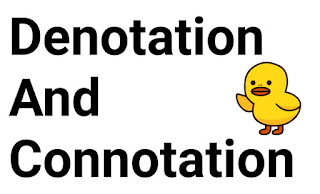SYNONYMS AND ANTONYMS
Exercise
Look at the sets of words below. Decide what the relationship is between the words in each set.
1. good, nice, satisfactory, enjoyable, pleasant
2. borrow, lend
3. chat, talk, discuss
4. hot, freezing
5. good, bad
Synonyms are words that have the same or similar meaning, for example: begin, start and commence or below and under. Dictionaries often make use of synonyms in their definitions. Many synonyms do not have exactly the same meaning. For example, in number 3 above, chat is not exactly the same as talk or discuss because it is informal and means 'to talk in a friendly way'. You chat with a friend but talk to the police and you discuss something serious but chat about something that is not so serious.
Synonyms may differ in connotation, register and the range of contexts in which they are used. For example, chair and seat can be synonyms: Is that chair/seat comfortable? However, seat can be used in a wide range of contexts (a seat in class, in the theatre, on a train, in the kitchen) whereas chair is not normally used in the theatre or on a train. Thin and skinny are synonyms, but skinny often has a negative connotation while thin is neutral.
Different words with the same meaning are used in different varieties of English, for example: biscuit (UK) and cookie (US); illness (general use) and condition (medical); Awesome! and Lovely! (different ages and social groups will prefer to use one or the other). Some words are more formal or informal than their synonyms, for example: I do hope we meet again soon (formal situations) and see you later (informal situations).
Words that have opposite meanings are called antonyms. In above Exercise, number 5, good and bad are true opposites and one excludes the other. If something is good it cannot be bad; good can replace bad with an opposite meaning. However, antonyms are not always truly opposite. For example, in number 2, borrow cannot replace lend with an opposite meaning. That is, borrow does not mean not lend in the way that good means not bad. The 'opposite' of I borrowed the book is I didn't borrow the book not I lent the book. In number 4, hot and freezing are near opposites and are on a scale of heat with boiling at the opposite end of the scale from freezing.
Some words have more than one meaning, which means that they have more than one antonym. For example, in This bag is so light and easy to carry, the opposite of light is heavy. However, in My bedroom is very light in the mornings, the opposite of light is dark. 😃



Comments
Post a Comment